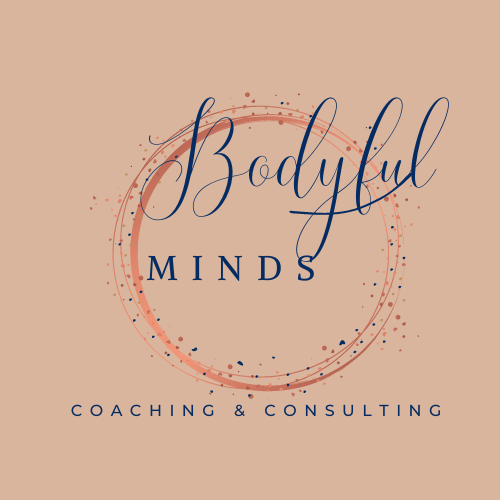Coping Mechanisms vs Empowerment Strategies
Motherhood is one of the most rewarding yet challenging journeys in life. At some point, nearly every mother has resorted to coping mechanisms to survive the whirlwind of responsibilities and emotions. But while these strategies offer short-term relief, they can sometimes trap us in a mindset that makes parenting feel heavier than it needs to be. Enter empowerment strategies: Intentional practices that help us reclaiming motherhood as confident, grounded parents and professionals, improving not only family dynamics but also workplace performance.
‘Knowing and Noticing’ to Reclaim Motherhood
Obviously, we cannot always be on top of things and feel empowered all the time, but it is important to notice when we are in survival mode and ‘only’ coping rather than thriving. When you acknowledge that you are just about coping, you can find your way back to a more empowered self. A self that is more in line with the person you want to be, the life you want to live. Allow yourself to cope in the least harmful way. Below I am giving a few examples on common coping mechanisms. By acknowledging them as such and tweaking them a little, they can pivot you closer to empowerment.
Self-Compassion for Alignment
In short, you can reclaim motherhood by being aware of what state you are in. Be gentle with yourself when you are in survival mode and trust, that you will get out of this ‘just about coping’ stage and back into alignment with yourself. Take the time to look closely, understand why you got where you are and what to do to get to where you want to be. The empowerment strategies below provide a menu of options to help you move beyond coping when you are ready.
Common Coping Mechanisms in Parenthood
Coping mechanisms are tools we use to manage stress or emotional overwhelm. Here are a few that are particularly common among parents:

- Sarcasm and Jokes: Humor is a universal coping tool. Who hasn’t laughed at a meme about the chaos of parenting or cracked a joke about their kids’ antics? While this can offer a moment of levity, over-relying on humor can perpetuate a sense of powerlessness or victimhood. There is a difference between sharing a laugh and connecting over it, and laughing something off. Using laughter to share the pain and connect with others is a better way to cope. It’s a fine line, but you will notice the difference.
- Over-Scheduling: Filling every moment with activities for ourselves or our kids can distract us from feelings of overwhelm or inadequacy. However, it often leaves little room for reflection or genuine connection. I know it’s work, the school, sports activities, playdates, doctors’ appointments etc. that set the pace. And yes, it is not always easy to skip special events, nor is it recommended in the case of important visits to the doctor. There is still wiggling room though. You do not have to schedule three plus different sports and music lessons for your kid(s) each week, or attend all the social events at school and work etc. Try to be mindful in your scheduling as best possible.
- Retail Therapy: Buying new toys, gadgets, or parenting hacks can feel like a quick fix to problems. But this often leads to clutter—both physical and emotional—without addressing the underlying issues. Instead of buying things, try investing into activities and experiences together, if you do want to spend money and get a special ‘wow factor’.
- Emotional Suppression: Powering through the day by ignoring feelings of frustration or sadness can keep us going in the short term, but it often leads to burnout or resentment. You are also more likely to snap at your kids for small things with increasing resentment. Next you are likely to beat yourself up about it, because that is not how you want to parent. The vicious cycle starts, because now you resent yourself. Feelings can be hard to deal with and we need to put them aside for a while sometimes, but when suppression becomes a routine, it is a guarantee for disaster in the long run.
The Downside of Coping Mechanisms to reclaiming motherhood
While it is obvious that these methods provide temporary relief, they can unintentionally reinforce feelings of helplessness or dependency on external factors and prevent you from reclaiming motherhood your way. When we rely solely on coping mechanisms, we risk staying stuck in cycles of overwhelm rather than addressing its root causes.
Empowerment Strategies for Ambitious Working Moms
Empowerment strategies, in contrast, help us take charge of our emotions and circumstances. These practices foster self-awareness, resilience, and a sense of control. They also translate into better energy levels, improved family connections, and enhanced job performance—a triple win. Here are a few to consider:

- Body Awareness: Practicing body awareness allows you to tune into physical sensations that reflect your emotional state. This helps you recognize overwhelm before it escalates and make decisions aligned with your values. Better alignment means better energy for both family and work.
- Mindful Breathing: Taking a few deep breaths during stressful moments can shift your nervous system from “fight or flight” mode to a calmer state. This simple practice helps you respond to challenges with clarity rather than reactivity, ensuring you stay focused both at home and on the job.
- Setting Priorities: Empowerment begins with knowing what truly matters to you, your family, and your career. Reflecting on your priorities can help you let go of unnecessary pressures and focus on what brings joy, connection, and professional growth.
- Sharing your struggles: Discussing your challenges with a partner, friend, or support group can create a sense of solidarity and perspective. Sharing struggles in a constructive way is far more empowering than bottling them up or turning them into jokes.
- Physical Movement: Activities like yoga, dancing, a run or even a brisk walk can release pent-up tension and boost your mood. Improved energy and mood positively impact how you engage with your kids and excel in your career.
How Empowerment Transforms Parenting and Work

When you shift from coping to empowerment, you move from reacting to life’s challenges to proactively shaping your experience and reclaiming motherhood on your own terms. Empowerment strategies don’t eliminate stress—but they change how you respond to it, allowing you to feel grounded, capable, and aligned in all areas of your life. As a result, you show up as a more present parent, a more effective professional, and a more energized version of yourself.
Final Thoughts on Reclaiming Motherhood
Parenting doesn’t come with a manual, but it does come with choices. While coping mechanisms will always have their place, integrating empowerment strategies can help you reclaim the joy, purpose, and confidence that come with raising your children. By reconnecting with yourself through practices like body awareness and mindful prioritization, you not only manage overwhelm—you thrive in the beautiful chaos of parenthood, career, and life.

